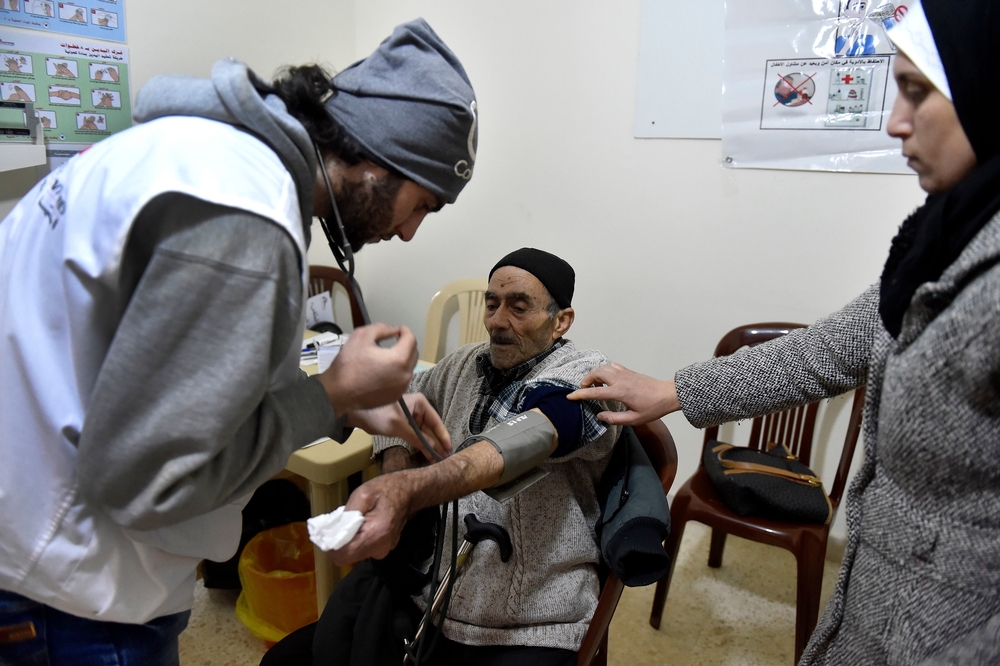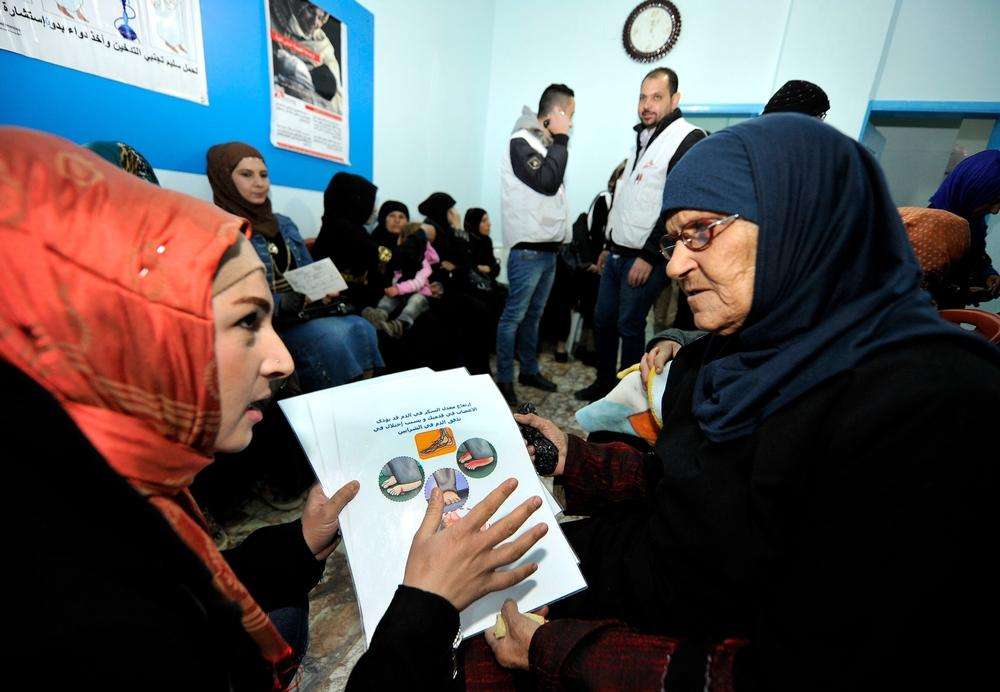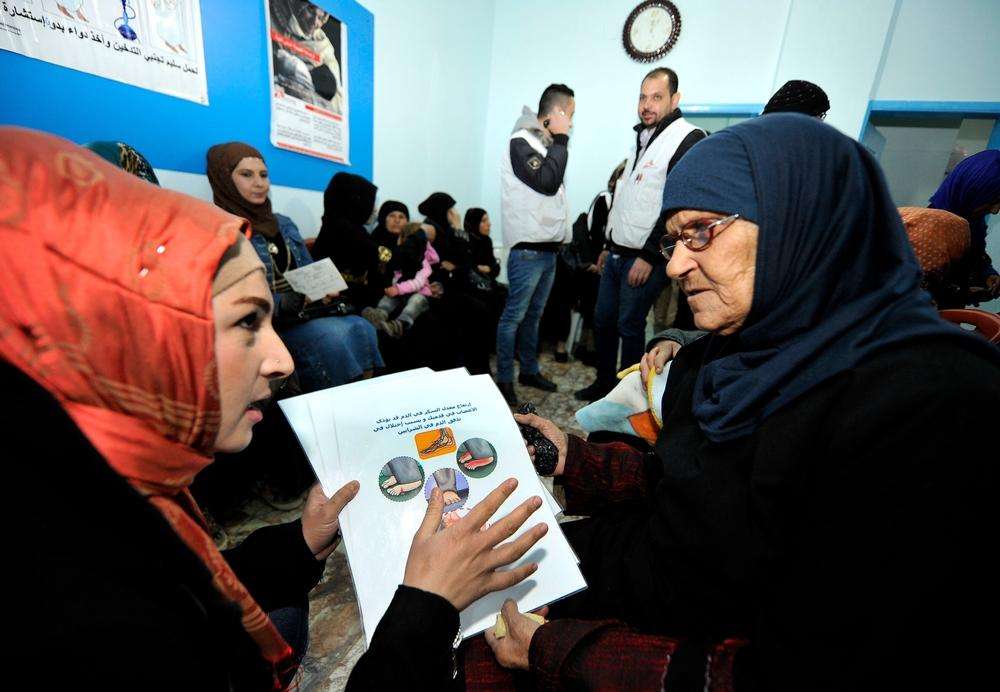"We have one Syrian patient—a 35-year-old man who has had diabetes since childhood," said Dr. Marc Gerhard, who works with Doctors Without Borders/Médecins Sans Frontières (MSF) in Lebanon’s Bekaa Valley, providing free health care to Syrian refugees. "For many years, his diabetes was badly controlled. As a result, his foot had to be amputated and his kidneys failed. He needed dialysis, but the hospital sent him away because he couldn’t pay for treatment. When he arrived at our clinic in Baalbek, he was in a very bad state."
Dr. Gerhard admits that this patient’s story is more dramatic than most. "The majority of our patients are in a stable condition due to the regular follow-up they’ve received from our clinic for the past three years," he said.
Some 365,000 Syrian refugees live in the Bekaa Valley, most in informal tented settlements without running water or electricity. Health care in Lebanon is mostly private, and few refugees can afford to pay medical fees, particularly for chronic conditions which require long-term care.
The clinic where Dr. Gerhard works is one of four MSF-run centers providing basic health care and maternity care in the Bekaa Valley, all free of charge.
"Just over one-quarter of consultations are for patients suffering from chronic diseases," he said. These include asthma, epilepsy, hypothyroidism, and chronic obstructive pulmonary disease, as well as hypertension, diabetes, and cardiovascular disease.

Many patients have more than one chronic condition.
"I am diabetic and I have also hypertension," said 50-year-old Naema, a refugee from the Syrian city of Homs, now living in the village of Duris in the Bekaa Valley. For the past three years she has been coming regularly to MSF’s clinic in Baalbek for treatment.
"I try not to miss my appointments," said Naema. "I know it is important—without medication I would die."
But Naema struggles to follow the doctors’ advice in full. To stay healthy and keep her condition under control, she needs a healthy diet, but obtaining the right food can be hard. The cheapest and most easily available foods are carbohydrates, such as bread, rice, and potatoes, while fruit, vegetables, and meat are all relatively expensive.
"I can’t always follow what the doctors advise me to eat," she said. "Sometimes this food isn’t available or I can’t afford to buy it. So I eat what I can."
Many of the refugees struggle to maintain a healthy lifestyle. "They live under very difficult circumstances—they live in tents with nothing," said Dr. Gerhard. "They also have many other sorrows, and it can be difficult for them to follow the treatment."
The MSF team takes this into consideration when advising the patients. "In normal circumstances, as a doctor, you tell your patients to limit their carbohydrate intake and to exercise," said Dr. Gerhard. "But how do you say this to refugees?"
MSF teams do what they can to make treatment easier for the refugees. Recently they have begun providing diabetic patients in the Bekaa Valley with glucometers, enabling them to measure the level of sugar in their blood at home, without having to travel to the clinic. Patients write their findings in a "diabetic passport," and, when they return to the MSF clinic, the doctor can determine the dose of insulin that each patient needs.
With regular treatment, chronic diseases are manageable and not life-threatening. Syrians in Lebanon face all kinds of problems, but MSF’s clinics in the Bekaa Valley try to give refugees with chronic diseases one less thing to worry about.
MSF runs 13 clinics providing basic health care and three mother and child care centers in Lebanon. MSF teams in the Bekaa Valley provide around 11,000 outpatient consultations per month.
Read More: In Jordan, Clinics Treating "Silent Killers" Note an Increase in Patient Numbers





